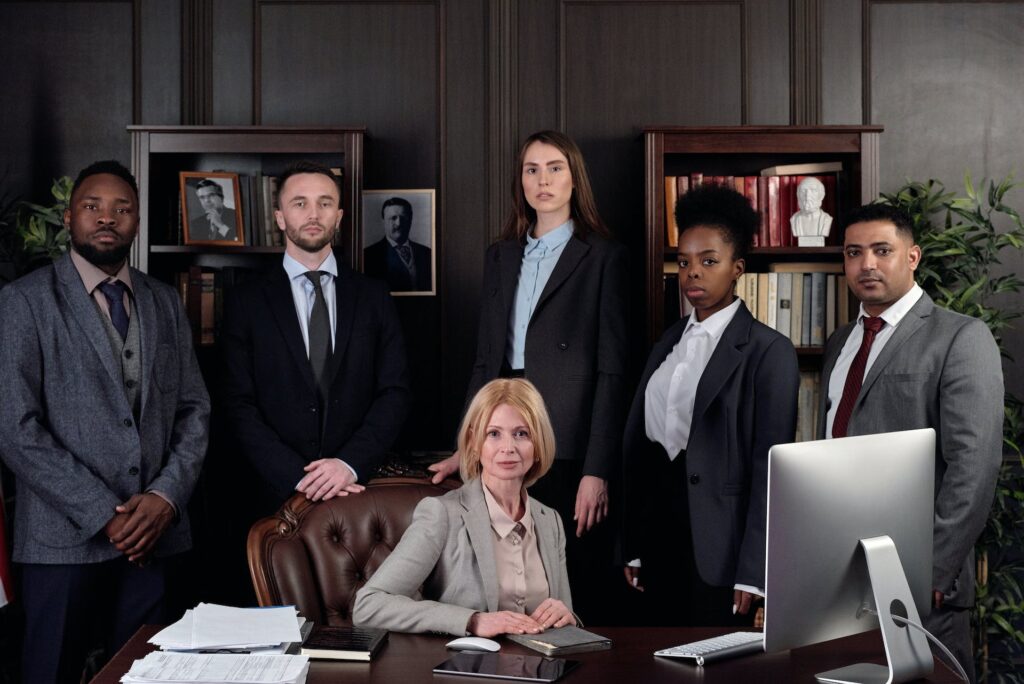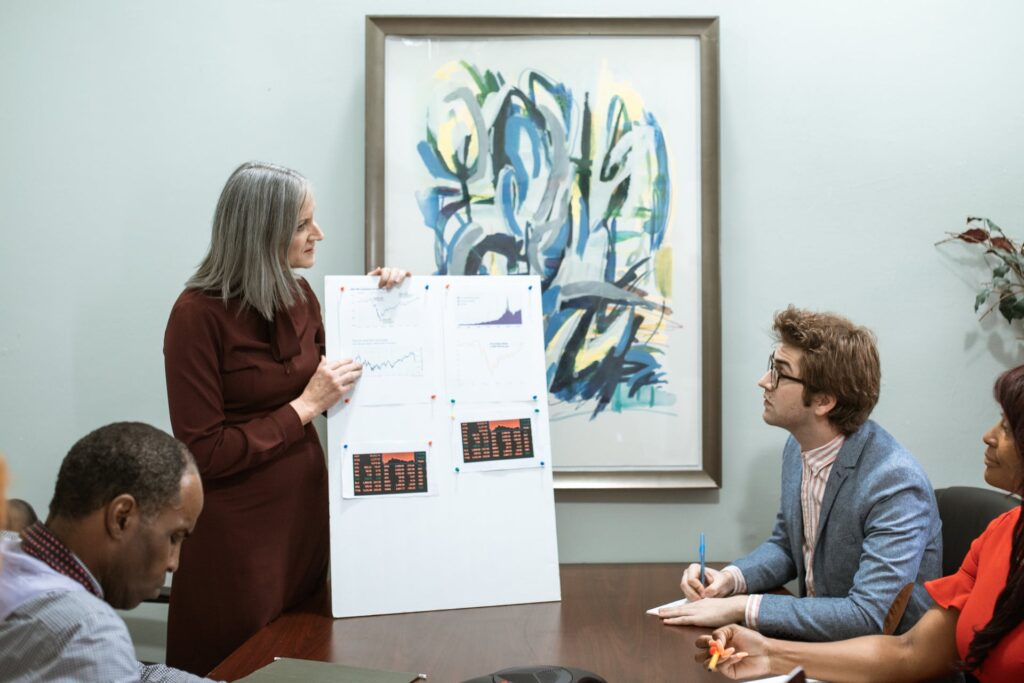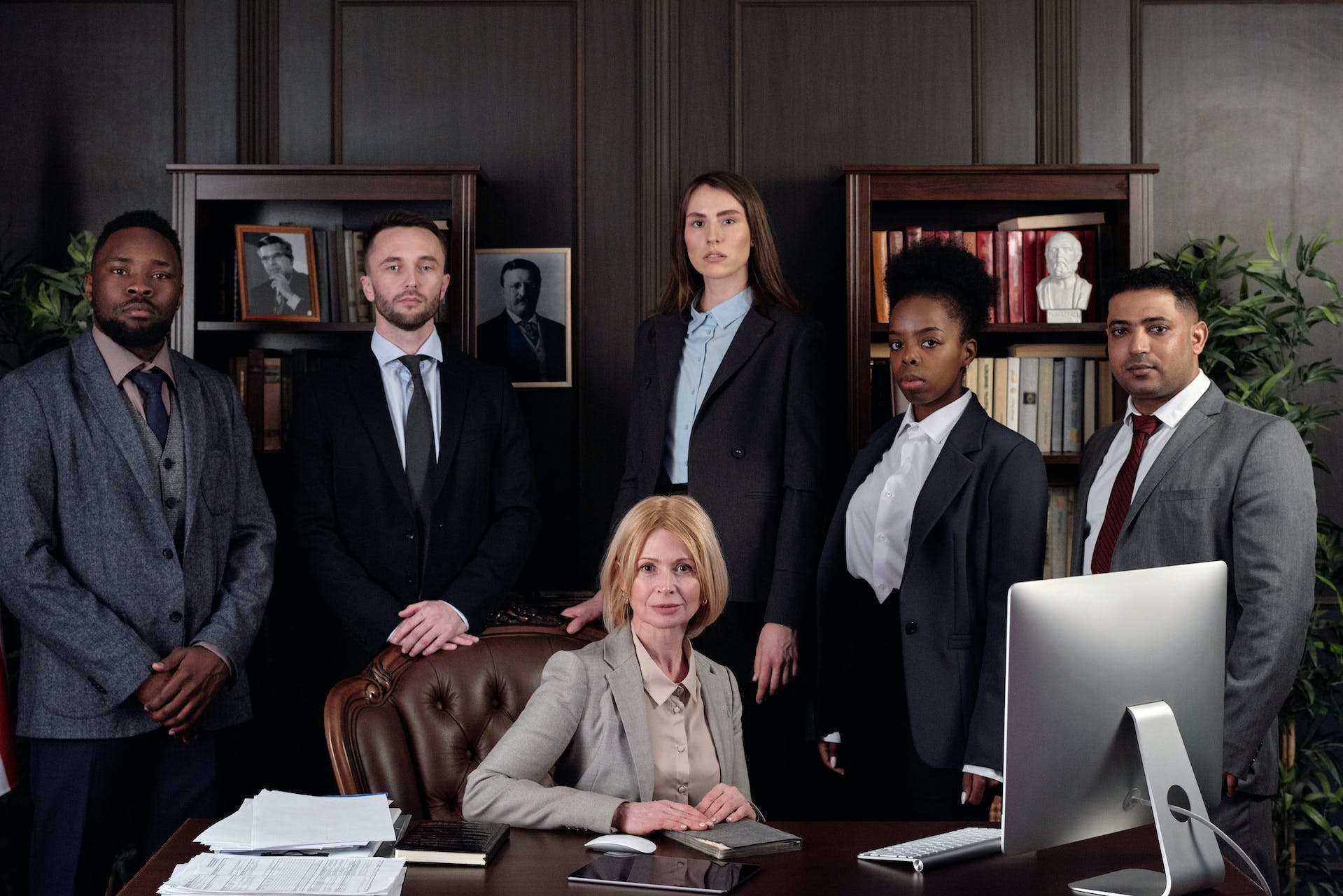“Great leadership is not just about directing; it’s about evolving.” This belief rings true for me and countless others who’ve stepped into the realm of leadership. Personal development is the backbone of effective leadership, and those at the helm need to keep growing, learning, and adapting. Today, I want to focus on ‘personal development goals for leaders’, an area often overlooked yet crucial for any leader’s success.
You might be wondering, “What exactly are personal development goals for leaders?” It’s a great question! These goals are not just about climbing the corporate ladder; they’re about enhancing your ability to lead, inspire, and make an impact. Whether you’re a seasoned executive or just stepping into a leadership role, understanding and setting these goals can transform your approach to leadership.

Understanding Personal Development Goals for Leaders
Let’s dive right in. Personal development in leadership is more than attending workshops or reading books. It’s about consciously evolving and adapting your skills to lead more effectively. Why is this important? Since our world is ever-evolving, the hurdles in leadership are also transforming. Let’s dive into the essential skills for personal development goals for leaders.
Goal 1: Enhance Communication Skills
As a leader, one of the most significant ‘personal development goals for leaders’ should be enhancing communication skills. Communication isn’t just about talking; it’s an art that involves listening, understanding, and conveying your thoughts effectively. Let’s delve into mastering this indispensable skill:
- Active Listening: Listen more than you speak. It shows respect and allows for a deeper understanding of different perspectives.
- Simplicity and Brevity: Strive for straightforwardness and directness in your communication. Steer clear of technical lingo or intricate expressions that could perplex your listeners.
- Empathy in Communication: Put yourself in others’ shoes. Empathetic communication fosters trust and strong relationships.
Communication and Leadership: The Undeniable Link
Effective leadership is deeply rooted in strong communication skills. This element is a fundamental aspect of ‘personal development goals for leaders’. Here’s why:
- Fosters Team Collaboration: Clear communication enhances teamwork and collaboration.
- Enhances Decision-Making: When you communicate effectively, you ensure everyone understands the vision, leading to better decision-making.
- Builds Trust: Transparency in communication builds trust and credibility with your team.
Goal 2: Cultivate Emotional Intelligence
Embracing emotional intelligence is like unlocking a superpower in leadership. It is one of the key skills of personal development goals for leaders. It’s not just about understanding our own emotions but also about recognizing and responding to the emotions of those around us. As we delve into this essential personal development goal for leaders, it’s crucial to grasp its impact and how to foster it.

Why Emotional Intelligence Matters in Leadership
- Enhanced Team Dynamics: Leaders with high emotional intelligence can foster a more collaborative and positive work environment.
- Improved Decision-Making: Understanding emotions leads to more empathetic and thoughtful decisions.
- Increased Resilience: Emotional intelligence equips leaders to handle stress and setbacks more effectively.
Steps to Cultivate Emotional Intelligence
Here are a few steps to cultivate emotional intelligence for leaders.
Self-Awareness:
- Regularly reflect on your emotions and reactions.
- Actively solicit opinions from colleagues and team members regarding how you handle emotions.
Self-Regulation:
- Practice mindfulness and stress-reduction techniques.
- Develop strategies to manage your emotional reactions in high-pressure situations.
Empathy:
- Actively listen to others’ concerns and viewpoints.
- Show genuine interest and understanding of team members’ experiences.
Social Skills:
- Improve communication, focusing on clarity and compassion.
- Foster a culture of open communication and establish a welcoming atmosphere for every member of your team.
Goal 3: Build Strong Decision-Making Abilities
In the world of leadership, the ability to make sound decisions is not just an asset, it’s a necessity. As someone who’s navigated this path, I understand the weight of decision-making and how it shapes the course of our teams and organizations. Let’s explore how building strong decision-making abilities is a crucial ‘personal development goals for leaders’.

Understanding the Essence of Decision-Making
Decision-making in leadership is more than just choosing between options. It’s about understanding the impact of your choices, not just today, but down the line. Here’s why it’s a vital skill:
- Navigating Complexity: Leaders often face complex situations that require careful consideration.
- Influencing Outcomes: Your decisions can significantly affect your team and organization’s future.
- Setting Precedents: Every choice we make establishes a precedent for handling similar scenarios down the road.
Steps to Enhance Your Decision-Making Skills
Improving your decision-making abilities doesn’t happen overnight. It’s a skill that requires practice and commitment. Here are the steps you can take:
- Gather Information: Before making a decision, ensure you have all the necessary information. This might mean consulting with team members, reviewing data, or researching best practices.
- Consider Different Perspectives: Don’t rush to a conclusion based on your initial viewpoint. Explore different angles and consider how your decision affects various stakeholders.
- Weigh the Pros and Cons: Evaluate the pros and cons of every alternative carefully.
- Trust Your Gut, But Verify: Intuition plays a role in leadership, but it should be paired with logical reasoning. If your gut says one thing, ensure the facts back it up.
- Learn from Mistakes: No leader makes perfect decisions all the time. Reflect on past decisions, especially the ones that didn’t turn out well, to understand what you could have done differently.
Goal 4: Develop Strategic Thinking
As someone who’s navigated the leadership landscape, I’ve learned that strategic thinking isn’t just a skill, it’s a necessity. It’s one of those ‘personal development goals for leaders’ that can truly redefine your approach to leadership. Let’s unpack what it means to develop strategic thinking and how it can transform your leadership style.
Understanding Strategic Thinking
- Definition: At its core, strategic thinking involves planning for the future, anticipating challenges, and making decisions that align with long-term success.
- Importance in Leadership: It enables you to lead with foresight, not just react to the present. This foresight is crucial for guiding your team or organization toward long-term goals.
Practical Steps to Develop Strategic Thinking
- Set Clear Goals: Define what success looks like for your team or organization in the long run.
- Stay Informed: Keep up with industry trends and global events that could impact your strategy.
- Encourage Open Communication: Cultivate a setting where your team members are encouraged and feel at ease to voice their thoughts and provide input.
- Reflect Regularly: Take time to reflect on your decisions and their outcomes. Learn from both successes and failures.

Goal 5: Foster a Growth Mindset
A growth mindset means embracing the idea that with commitment and effort, your skills and capabilities can continuously evolve and improve. As we delve into this crucial aspect of ‘personal development goals for leaders’, let’s unravel how fostering a growth mindset can revolutionize your leadership style.
Cultivating a Growth Mindset: Practical Steps
- Embrace Challenges: Consider each challenge as a chance to expand your knowledge and skills, rather than seeing them as hurdles to sidestep.
- Value Constructive Criticism: See constructive feedback not as a setback, but as a stepping stone to better yourself. Take the time to listen attentively, ponder the insights, and utilize them to refine your abilities and strategies.
- Celebrate Effort, Not Just Success: Recognize the effort and progress, not just the result. This approach fosters perseverance and motivation.
- Encourage Team Learning: Promote an environment where your team feels safe to take risks, make mistakes, and learn from them.
- Model Lifelong Learning: Demonstrate your commitment to growth by actively engaging in learning opportunities and sharing your experiences with your team.
Goal 6: Improve Conflict Resolution Skills
Navigating the choppy waters of conflict is a part and parcel of leadership. It’s not just about putting out fires; it’s about understanding the spark that caused them. As a leader, honing your conflict resolution skills is a pivotal ‘personal development goals for leaders.’ Let’s break down how you can master this art.
Strategies for Effective Conflict Resolution
- Open Communication: Encourage a culture where team members feel comfortable expressing their concerns. This openness prevents misunderstandings from escalating into conflicts.
- Seek Common Ground: Focus on finding a solution that benefits all parties involved. It’s not about winning; it’s about resolving.
Implementing Conflict Resolution
- Stay Calm and Composed: Your reaction sets the tone. Stay calm to help de-escalate the situation.
- Fair Mediation: Be an unbiased mediator. This helps in creating a trusting environment where conflicts can be resolved amicably.
Goal 7: Prioritize Self-Care and Well-being
Last but certainly not least, self-care. In our journey of exploring ‘personal development goals for leaders’, a crucial, yet often overlooked aspect is self-care and well-being. You might think, “Isn’t leadership about focusing on others?” Absolutely, but here’s the kicker: to effectively lead others, you need to be in top shape yourself.

The Unseen Aspect of Leadership: Self-Care
Self-care isn’t selfish; it’s necessary. Here’s why:
- Boosts Your Energy: Regular self-care recharges your batteries, giving you the energy to lead effectively.
- Enhances Decision-Making: A well-rested mind is more capable of making sound decisions.
- Improves Emotional Intelligence: When you’re in tune with your needs, you’re better equipped to understand and empathize with others.
Practical Self-Care Strategies for Busy Leaders
Let’s break down some practical ways to incorporate self-care into your hectic schedule:
- Structured Downtime:
- Schedule short breaks throughout your day.
- Use this time to step away from work – maybe a quick walk or a moment of meditation.
- Physical Health:
- Regular exercise: even 30 minutes a day can make a huge difference.
- Healthy eating: nutritious foods fuel both your body and mind.
- Mental Health:
- Mindfulness practices: Consider activities such as meditation or deep breathing exercises to enhance focus and calmness.
- Consistent Sleep Habits: Strive for 7-8 hours of restful sleep each night to rejuvenate both mind and body.
- Personal Interests:
- Engage in hobbies: this could be anything from reading to gardening.
- Discover something novel: it energizes your mind and adds excitement to your routine.
- Social Connections:
- Spend time with loved ones: they’re your support system.
- Network with peers: share experiences and learn from each other.
Implementing Personal Development Goals for Leaders
So, how do you incorporate these goals into your leadership style? Embarking on the journey of personal growth as a leader can be transformative. Implementing ‘personal development goals for leaders’ is not just about setting objectives; it’s about creating a roadmap for your growth and success. Let’s dive into a concise guide to help you navigate this path:

- Identify Your Goals: Reflect on your leadership qualities and select specific ‘personal development goals for leaders’ that resonate with you and your leadership style.
- Set SMART Goals: Ensure your ‘personal development goals for leaders’ are Specific, Measurable, Achievable, Relevant, and Time-Bound. This framework turns vague aspirations into actionable objectives.
- Create an Action Plan: Segment each objective into more manageable, bite-sized tasks. Schedule these tasks and identify resources, like workshops or mentorship, that can support your journey.
- Putting Plans into Motion: Kickstart your journey by initiating the steps outlined in your blueprint. Regularly monitor your progress and adjust your strategies as needed to stay on track with your ‘personal development goals for leaders’.
By following these steps, you’ll be able to methodically work towards your personal development goals for leaders, enhancing your leadership skills and making a meaningful impact in your role. Remember, the journey of personal growth is ongoing, and each step you take is a leap toward becoming a more effective and inspiring leader.
Conclusion
Incorporating ‘personal development goals for leaders’ into your routine isn’t just beneficial; it’s essential. We’ve explored key strategies to enhance your leadership skills. It’s about growing as a person so you can be a better leader for your team. So, I encourage you to take the first step today. Reflect on these goals, pick one that resonates with you, and start working on it. You’ve got this!





